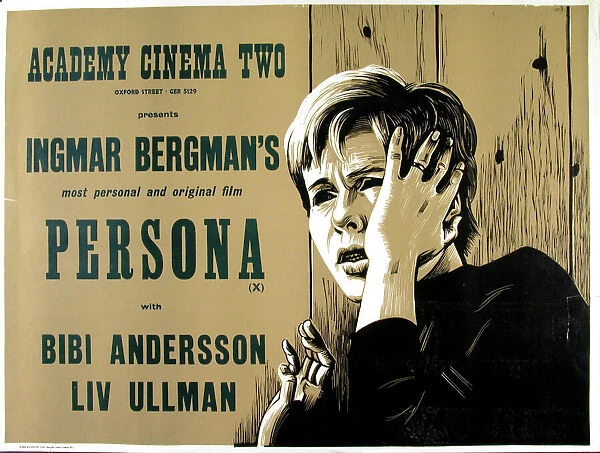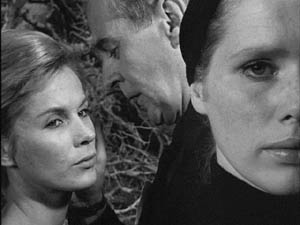Holidays have put me behind again, I see.
Picking up where I left off, The Night of the Hunter left me cold when I saw it many years ago, but it is so highly respected that I suspect there's a decent chance I was wrong/in the wrong mood/misreading the film/etc., so at some point I will watch it again and see what happens. North by Northwest is super entertaining but was not the Hitchcock I happened to pick for my my list.
As I said upthread, The (og) Terminator is my favorite of the two (they only made two of these... right?), so happy to see it appear (though tbh my top 100 list could easily have 200 movies on it). Gone with the Wind ... well, I think I concur with just about all the preceding comments about it, even, maybe especially, the ones that contradict each other. It's epic and overlong, racist and of its time, gorgeous and ugly. It belongs on this list and nowhere near it. Films tell our story, and sometimes our story gets it terribly wrong but still reveals some hidden truths about us.
Come and See is high on my list of movies to see, if with trepidation. And we finally come to my Wilder pick, Sunset Blvd., which was #16 on my list. I've got 24 movies rated 10/10 and this is one of them.
Neither Fight Club nor No Country for Old Men made my list, but both are excellent and worthy. I watched Fight Club recently and the way it illuminates the paths of alienated young men at the turn of the century looks quite prescient in retrospect.
Amadeus is difficult to assess as I haven't seen it in probably 30 years but I rated it highly at the time. For Raging Bull, see my reaction to The Night of the Hunter.
The Third Man was #8 on my list--a movie that I love and admire. The Exorcist didn't make my list but it's a terrific horror film that holds up remarkably well even almost 50 years on.
I'll never not be slightly be slightly aggrieved by the sting at the end of The Silence of the Lambs--it's a terrific piece of filmmaking but it also places the audience squarely on the side of Lecter without pulling us up short. Chilton may be loathsome but he doesn't deserve his fate. Still and all, the movie as a whole is brilliant, even if it wasn't on my list. No Bergman films made my final list, but Persona would have been a top option.
Picking up where I left off, The Night of the Hunter left me cold when I saw it many years ago, but it is so highly respected that I suspect there's a decent chance I was wrong/in the wrong mood/misreading the film/etc., so at some point I will watch it again and see what happens. North by Northwest is super entertaining but was not the Hitchcock I happened to pick for my my list.
As I said upthread, The (og) Terminator is my favorite of the two (they only made two of these... right?), so happy to see it appear (though tbh my top 100 list could easily have 200 movies on it). Gone with the Wind ... well, I think I concur with just about all the preceding comments about it, even, maybe especially, the ones that contradict each other. It's epic and overlong, racist and of its time, gorgeous and ugly. It belongs on this list and nowhere near it. Films tell our story, and sometimes our story gets it terribly wrong but still reveals some hidden truths about us.
Come and See is high on my list of movies to see, if with trepidation. And we finally come to my Wilder pick, Sunset Blvd., which was #16 on my list. I've got 24 movies rated 10/10 and this is one of them.
Neither Fight Club nor No Country for Old Men made my list, but both are excellent and worthy. I watched Fight Club recently and the way it illuminates the paths of alienated young men at the turn of the century looks quite prescient in retrospect.
Amadeus is difficult to assess as I haven't seen it in probably 30 years but I rated it highly at the time. For Raging Bull, see my reaction to The Night of the Hunter.
The Third Man was #8 on my list--a movie that I love and admire. The Exorcist didn't make my list but it's a terrific horror film that holds up remarkably well even almost 50 years on.
I'll never not be slightly be slightly aggrieved by the sting at the end of The Silence of the Lambs--it's a terrific piece of filmmaking but it also places the audience squarely on the side of Lecter without pulling us up short. Chilton may be loathsome but he doesn't deserve his fate. Still and all, the movie as a whole is brilliant, even if it wasn't on my list. No Bergman films made my final list, but Persona would have been a top option.










 Check out my podcast:
Check out my podcast: 